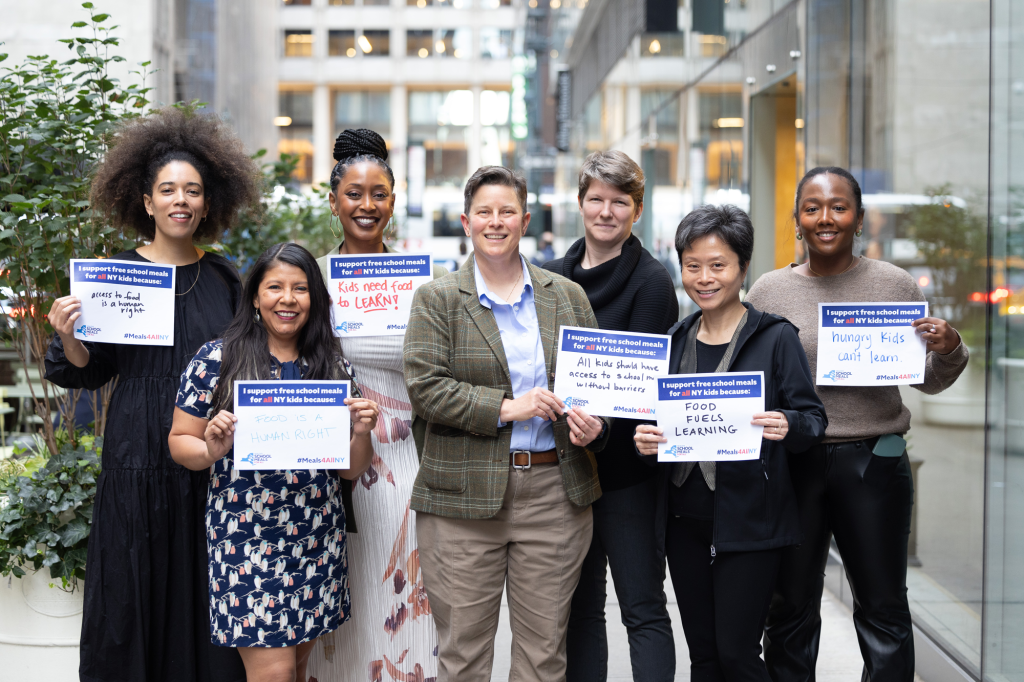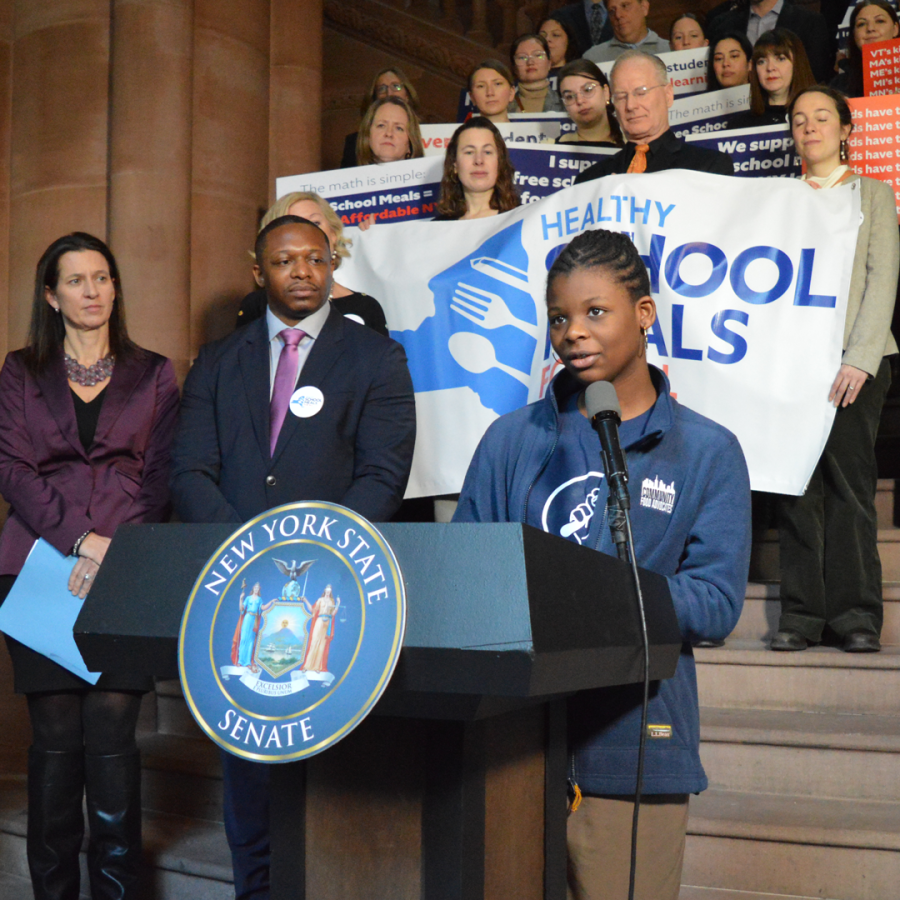When the new school year begins, students across New York State will no longer face the stigma associated with free school lunch or wonder where their next meal will come from. Families will have one less application to fill out, and schools won’t have to act as debt collectors.
In May, thanks to years of tireless Trust-supported advocacy by Community Food Advocates and Hunger Solutions New York, lawmakers approved statewide universal free school meals for the 2025-2026 school year. This investment means 2.7 million students will have access to free school breakfast and lunch, regardless of their family’s income.
“Universal school meals are one of the most broad-reaching, effective ways to address childhood hunger while positively impacting the family budget,” said Liz Accles, executive director of Community Food Advocates. “It means that school meals are just like anything else in a public school system: They’re available to everyone.”
The Trust has supported Community Food Advocates since 2013, when the nonprofit led a four-year campaign that won universal school lunches in New York City in 2017. While 75 percent of city students had previously been eligible for free or reduced-price lunch, research shows that one in three of those eligible didn’t participate to avoid embarrassment and bullying—an obstacle universal programs eliminate.

More recent grants have built upon this victory. To make healthy school meal options more appealing to students and encourage them to select a variety of food, Community Food Advocates used a Trust grant to successfully campaign for the city to redesign more than 50 middle- and high-school cafeterias to resemble food courts and delis. Subsequently, they secured funding for the city to fully scale the redesign to more than 500 middle- and high-school cafeterias throughout the city. Other grants have supported the expansion of halal and kosher options and helped families get school meals when classes were held remotely during the Covid-19 pandemic.
Contrary to stereotypes, the United States Department of Agriculture found that children across income categories eat healthier foods when they get school meals rather than bringing lunch from home. School meals are required to meet strict standards for sodium and sugar levels and provide a nutritious balance of food groups, including fruits, vegetables, whole grains, and protein.
In 2023, The Trust’s Long Island office began making grants to Community Food Advocates to expand the universal school meals policy to the entire state. As Long Island experiences an affordability crisis, free school meals reduce the burden on food pantries and save families an estimated $165 on groceries per child, per month. Trust Program Director Melissa Greenberger believes the impact could also extend to supporting sustainable local agriculture.
“One of the things that I’m hoping for is that this will encourage more local buying,” Greenberger said. “So, not only would all students have free meals, but they’d be made with local, fresher, more nutritious food. It could boost the Long Island economy and put more money in our farmers’ pockets.”
Wide-reaching victories like these don’t happen in a vacuum. Community Food Advocates and Hunger Solutions New York worked with more than 350 coalition partners, including the New York Farm Bureau, New York State United Teachers, and the School Nutrition Association, to drive bipartisan support for universal school meals.
A 2025 grant from The Trust’s Westchester office will help Community Food Advocates work with aligned organizations, educators, and families to ensure the program’s successful adoption and gather the data and stories needed to continue advocating for it.
“Universal programs, with few exceptions, are the most effective. But we don’t have much of a history of those types of programs in this country,” said Accles. “One of the challenges we face is making the case and changing perceptions.”




